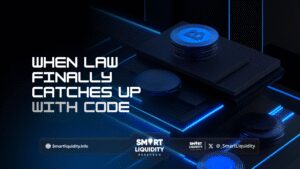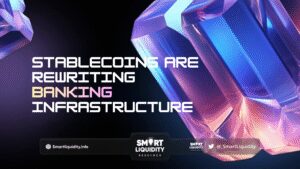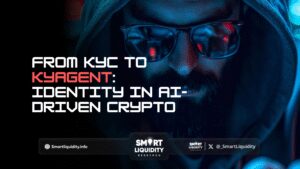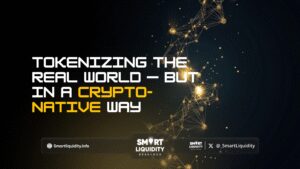Interesting Facts About Meter


Interesting Facts About Meter! “Meter” is a blockchain protocol designed to provide a scalable and efficient platform for decentralized applications (dApps) and smart contracts.
The Meter blockchain is designed to be compatible with the Ethereum Virtual Machine (EVM), meaning that developers can use existing Ethereum tools and programming languages to build dApps on the Meter blockchain. However, unlike Ethereum, Meter uses a Proof-of-Capacity (PoC) consensus mechanism, which allows for high scalability and energy efficiency.
The Meter blockchain also includes a unique feature called “MTR staking”. It allows users to earn rewards by staking MTR tokens and participating in the network’s consensus process. The rewards are distributed in the form of newly minted MTR tokens, which incentivize network participation and provide a mechanism for token distribution.
What Are The Key Features Of Meter?
The Meter has several key features that set it apart from other blockchain protocols:
- Proof-of-Capacity (PoC) Consensus Mechanism
The Meter uses a PoC consensus mechanism that is designed to be energy-efficient and scalable. Furthermore, this mechanism allows users to mine blocks by proving that they have allocated storage space on their devices, rather than by solving complex mathematical equations like other consensus mechanisms. This approach helps to reduce energy consumption and improve scalability. - Ethereum-Compatible
The Meter blockchain is compatible with the Ethereum Virtual Machine (EVM). This means that developers can use existing Ethereum tools and programming languages to build decentralized applications (dApps) on the Meter blockchain. - Decentralized Finance (DeFi) Focus
In addition, Meter is designed to be a platform for DeFi applications, and it includes a variety of features that are specifically tailored to DeFi, such as algorithmic stablecoin (MTR), staking, and cross-chain interoperability. - Cross-Chain Interoperability
The Meter is designed to be interoperable with other blockchain protocols, which means that users can transfer assets and data between different blockchains. Moreover, this interoperability is achieved through the use of bridges and other technologies that allow for cross-chain communication. - MTR Staking
The Meter includes a staking mechanism that allows users to earn rewards by staking MTR tokens and participating in the network’s consensus process. The rewards are distributed in the form of newly minted MTR tokens, which incentivize network participation and provide a mechanism for token distribution.
All these features make Meter a unique and powerful blockchain protocol that is well-suited for building decentralized finance applications and other types of decentralized applications.
What Are The Products of Meter?
Meter has several products that are designed to support the development and use of its blockchain protocol.
These include:
The Meter Passport
Meter Passport is a multi-chain wallet that allows users to securely store and manage their assets across multiple blockchains. These blockchains include Meter, Ethereum, and Binance Smart Chain. Meter Passport is designed to be user-friendly and easy to use, with features such as one-click token swaps and a decentralized exchange (DEX) aggregator.
The Meter Explorer
Meter Explorer is a block explorer that allows users to view transaction histories and other data on the Meter blockchain. The explorer provides real-time data on block production, network activity, and other metrics, making it a valuable tool for developers and users.
Meter Bridge
Meter Bridge is a cross-chain bridge that allows users to transfer assets between the Meter blockchain and other blockchains. The bridge is designed to be fast and secure, and it supports a wide range of assets, including BTC, ETH, and ERC-20 tokens.
Meter Stable
Meter Stable is an algorithmic stablecoin that is pegged to the value of a basket of commodities, including gold, silver, and oil. The stablecoin is designed to be stable and reliable, with low volatility and a high level of decentralization.
Meter Governance
Meter Governance is a decentralized governance system that allows users to participate in the decision-making process for the Meter blockchain. Additionally, users can submit proposals, vote on proposals, and earn rewards for participating in governance.
Overall, these products are designed to support the development and use of the Meter blockchain and to provide users with a range of tools and services that make it easy to use and interact with the blockchain.
The Meter Token and its Use Cases
The Meter Token (MTR) is the native token of the Meter blockchain, and it serves several important use cases on the platform.
Some of the key use cases of the MTR token include:
- Staking
Users can stake MTR tokens to participate in the network’s consensus process. They can also earn rewards for validating transactions and producing blocks. The staking mechanism also helps to secure the network and ensure its reliability and efficiency. - Transaction Fees
MTR tokens are also used to pay transaction fees on the Meter blockchain. These fees are used to incentivize validators to include transactions in the blockchain and to prevent spam and other forms of abuse. - Governance
MTR tokens are also used for decentralized governance on the Meter blockchain. Token holders can submit proposals, vote on proposals, and earn rewards for participating in the decision-making process. - Cross-Chain Bridge Fees
MTR tokens are used to pay for fees associated with the Meter Bridge. It also allows cross-chain asset transfers between the Meter blockchain and other blockchains. - Algorithmic Stablecoin
MTR tokens are used as collateral for the Meter Stable stablecoin. It is an algorithmic stablecoin pegged to the value of a basket of commodities. By holding MTR tokens, users can generate Meter Stable and use it for transactions and other purposes on the platform.
Overall, the MTR token is a key component of the Meter blockchain ecosystem, and it serves multiple important use cases, including staking, governance, and cross-chain interoperability.
Meter Governance Token
MTRG is the governance token of the Meter blockchain. It is also used to participate in the decentralized governance of the network, allowing token holders to vote on proposals and make decisions that impact the development and direction of the platform.
MTRG is a separate token from the MTR token. This is used for staking, transaction fees, and other functions on the Meter blockchain. However, MTRG can be earned by staking MTR tokens and participating in the network’s consensus process. By staking MTR tokens, users can earn rewards in the form of newly minted MTRG tokens, which can then be used to participate in governance.
Furthermore, the MTRG token is designed to provide a mechanism for decentralized decision-making on the Meter blockchain. Through the use of MTRG, users can submit proposals for platform improvements, changes to network parameters, and other types of decisions. These proposals are then voted on by the community. Furthermore, with MTRG token holders have a proportional say in the outcome of each vote.
Overall, MTRG is an important component of the Meter blockchain ecosystem. It also provides a mechanism for decentralized governance and allows users to participate in the decision-making process for the platform.
METER OFFICIAL CHANNEL
Website | Twitter | Discord | Telegram




